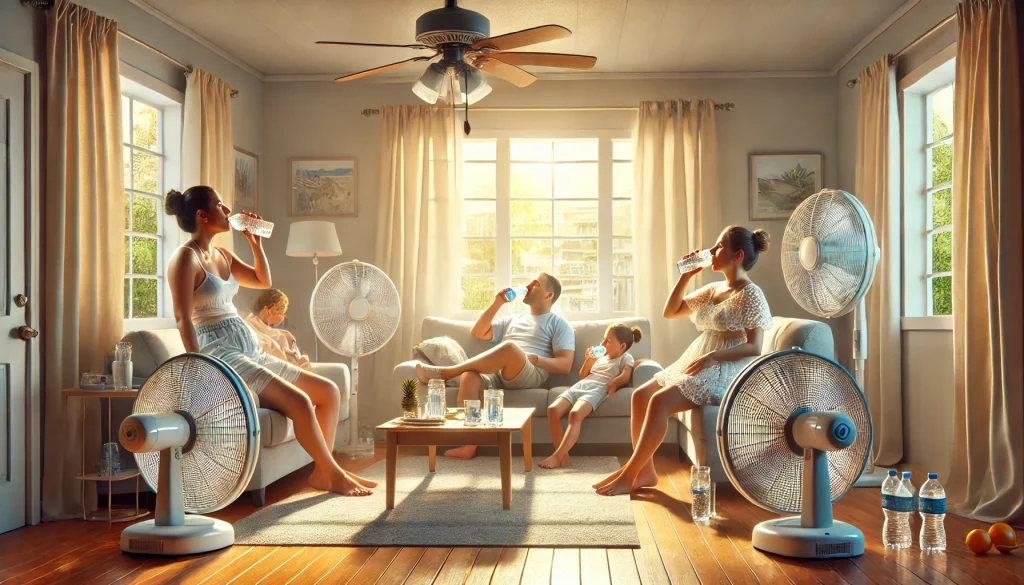Staying Safe in Puerto Rico’s Summer Heat: Essential Tips for 2024

Learn how to stay safe during the dangerous heat of summer 2024 in Puerto Rico. Discover practical tips for staying hydrated, creating a cool environment, dressing appropriately, scheduling outdoor activities wisely, and educating the community on heat safety. Ensure a healthy and enjoyable summer with these essential guidelines.
Understanding the Impact of Extreme Heat:
Extreme heat can have significant effects on our health and well-being. In Puerto Rico, where summer temperatures can soar, it's vital to recognize the risks associated with heatwaves. Prolonged exposure to high temperatures can lead to heat exhaustion, heatstroke, and other heat-related illnesses. Knowing the symptoms of these conditions is the first step in safeguarding ourselves. Symptoms can include heavy sweating, dizziness, nausea, and confusion. By being aware of these signs, we can take proactive measures to ensure our safety and the safety of our loved ones.
Staying Hydrated:
One of the most effective ways to protect ourselves from the dangers of extreme heat is to stay hydrated. Drinking plenty of water throughout the day helps to regulate our body temperature and keeps us feeling refreshed. It’s important to avoid beverages that can dehydrate us, such as alcohol and caffeinated drinks. Instead, opt for water, herbal teas, and electrolyte-rich drinks. Carry a reusable water bottle with you and take regular sips, even if you don’t feel thirsty. Remember, staying hydrated is key to maintaining our health during hot summer days.
Creating a Cool Environment:
Creating a cool environment at home and work is crucial during the summer months. Use fans and air conditioning to keep indoor spaces comfortable. Close curtains and blinds during the hottest parts of the day to block out the sun’s rays. If air conditioning isn’t available, consider visiting public places like libraries or shopping centers that offer a cool respite. Additionally, taking cool showers or baths can help lower body temperature. Investing in cooling mattresses and pillows can also make a significant difference in ensuring a comfortable night's sleep.
Dressing Appropriately:
Choosing the right clothing can greatly impact how we handle the heat. Light-colored, loose-fitting clothes made from natural fabrics like cotton and linen are ideal for hot weather. These materials allow our skin to breathe and help evaporate sweat more efficiently. Wearing a wide-brimmed hat and sunglasses can protect us from the sun’s direct rays. Don’t forget to apply a high-SPF sunscreen to exposed skin to prevent sunburn, which can further increase the risk of heat-related illnesses. Dressing appropriately is a simple yet effective way to stay cool.
Scheduling Outdoor Activities Wisely:
Planning our outdoor activities during the cooler parts of the day can help us avoid the peak heat. Early mornings and late evenings are typically the best times for physical exertion. If we need to be outside during midday, it’s important to take frequent breaks in shaded or air-conditioned areas. Engaging in strenuous activities, such as exercise or yard work, should be done with caution. Always listen to your body and stop immediately if you start to feel overheated or unwell. By scheduling our activities wisely, we can enjoy the summer while staying safe.
Educating the Community:
Finally, educating our community about the dangers of extreme heat and how to protect against it is essential. Sharing information through local events, social media, and community centers can raise awareness and encourage everyone to take the necessary precautions. We can work together to ensure that vulnerable populations, such as the elderly and those with chronic illnesses, receive the support they need during heatwaves. Community education fosters a culture of preparedness and mutual care, making it easier for everyone to navigate the summer heat safely.






